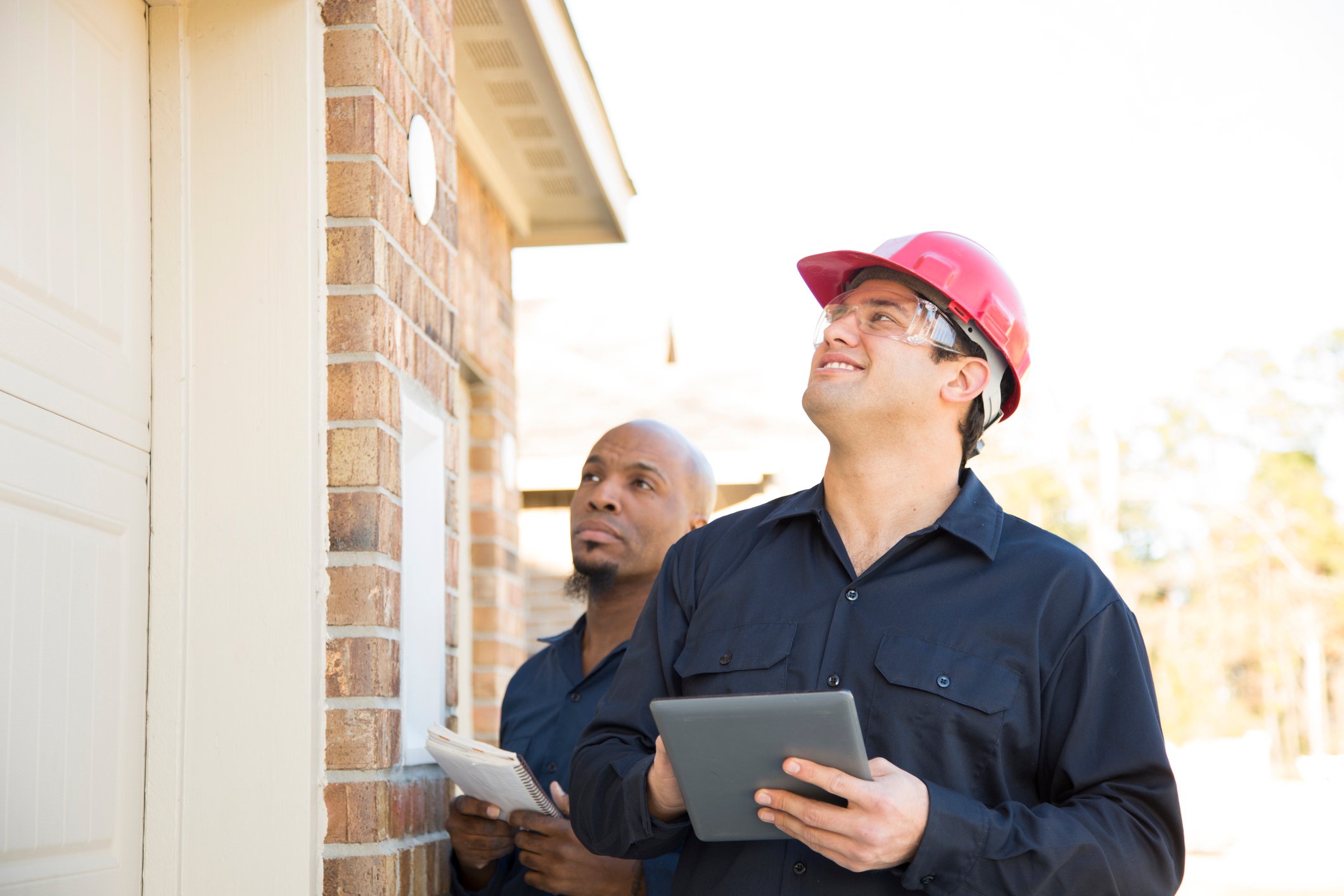While not compulsory, a building and pest inspection is a task that falls into the necessary category for any potential home buyer.
A building inspection can uncover any structural, conditional and design defects in the exterior or interior of a property that may not be visible in a half-hour viewing — and are expensive to fix once you’re the homeowner. The results of an inspection could impact how much you’re willing to pay for the home, or help you to determine that you’d prefer to revoke your offer.
In addition to a building inspection, a pest inspection should reveal any evidence of damage from termites or other insects, such as woodworms, though it may not necessarily be able to tell if they still inhabit the property.
How to get a building inspection
Before getting a building inspection, you should know that when you ask for a contract of sale, the selling agent must inform you, a prospective buyer, about previous building inspection reports commissioned on the property. You might be able to negotiate a cheaper price to repurchase that report from the person who conducted it. Although, given it was probably done by the last owner and may be years or even decades old, it is generally recommended to go ahead with a new one.
When choosing an inspector, you should always use a qualified builder, surveyor or architect who has experience providing professional residential reports. You can also check on a tradesperson’s qualifications through your state’s Fair Trading website.
A good inspector should be able to see through any faults that have been covered up or are not readily visible to the naked or untrained eye. They will also ensure that the report’s content is in strict accordance with the required regulatory standards.
You should aim to have the inspection completed before contracts are exchanged to avoid a potentially unpleasant situation. If you do exchange contracts first and the property inspection report identifies serious issues that mean you can no longer go ahead with the purchase, you do have a cooling-off period in which to change your mind. In NSW, for example, you have a five-day cooling-off period following the exchange of contracts. This does not apply to auctions, however, so you need to be wary of your contractual obligations and make sure you are satisfied with the building’s condition prior to bidding.
Most consultants require a minimum of two to three days’ notice to do a building inspection, and you should get the vendor’s permission to have the property inspected as early in the sale negotiations as possible to avoid contractual issues. Additionally, getting your inspection report sooner rather than later makes sense so you don’t spend any more time and money on conveyancing until you are aware of the property’s condition.
Building inspections typically take between one and two hours to complete and another few days to finalise the report.
» MORE: What is home equity?
What a building and pest inspection covers
House inspection checklist
The inspection should include all accessible parts of the property, both interior and exterior, including the:
- Roof and the space between the ceiling and roof.
- Underfloor space.
- Garage or carport.
- Outdoor sheds or external laundries or toilets.
- Non–structural retaining walls.
- Fence.
- Pathways between buildings and fences.
- Surface and stormwater drainage.
- Driveways.
The final report should include any significant building defects or problems, such as:
- Structural issues.
- Rising damp.
- Rotting floorboards.
- Movement in the walls (cracks or warping).
- Safety hazards.
- A faulty roof.
- Damage caused by termites or other pests (if you’ve asked for an accompanying pest report).
- Visible signs of asbestos.
- Unsafe or exposed power points and switches.
Your building inspector will usually have their own checklist of what they want to examine, but make sure you specify any particular items or areas you want inspected.
Building inspections generally do not cover:
- Minor defects brought about by wear and tear.
- Plumbing and drainage.
- Electrical wiring.
- Smoke detectors.
- TV reception.
- Swimming pools.
- The condition of the paint.
- Fireplaces and chimneys.
- Alarm and intercom systems.
- Carpet and lino.
- The condition of household appliances, such as dishwashers, stoves and ovens.
How long does a building and pest inspection take?
The time it will take for a professional inspector to thoroughly examine your future home will be dependent on the home’s size and complexity, among other things. In most cases, a whole building and pest inspection will take at least 90 minutes, but could take up to 5 hours.
What a building and pest inspection costs
Building inspections typically cost hundreds of dollars, so you’ll need to be fairly sure that you want to proceed with the sale. Otherwise, you could end up ordering reports for several properties during the course of your home search, which would be costly.
Additionally, you want to know as much as possible before enlisting an inspector’s help, so use your property viewings wisely. You might only get half an hour at a time, but you can use that time productively by checking that the windows and doors all open easily and don’t get stuck, that there’s little or no visible pipe rust in the laundry or under any sinks, that there are no horrible odours and that the lights and switches all work properly. At any rate, you can draw up your own checklist before a viewing.
Who pays for a building and pest inspection?
The potential buyer incurs the cost of inspections. Building and pest inspections are not tax deductible in the year they are incurred but can be added to your cost base to reduce your capital gains if you sell the property for a profit.
If possible, you should find an inspector that can conduct both a building and pest inspection to save you the cost and hassle of getting two reports done. Any problems that emerge will usually be influenced by the age and type of property you purchase. Your inspector should know what to look out for under those circumstances.
» MORE: Costs to know when buying a home
Why you should get a building inspection report
Once they’ve examined the property, a building inspector will prepare a property inspection report that must be in accordance with Australian standards.
The report should include a summary of the property’s overall condition and any faults that require fixing. If necessary, the inspector might also recommend a further inspection by a specialist, such as a structural engineer or an electricity or water supply authority.
So, are building and pest inspections something you really need or just optional extras? Identifying and fixing problems before purchase could very well save you thousands of dollars in the future, and having an expert examine your property should be viewed as an extra layer of insurance.
Also, if any issues that arise from the report do not totally deter you from going ahead with the purchase, you might be able to use the information to negotiate a lower price for the property, especially if the seller is worried that the sale might fall through.
DIVE EVEN DEEPER

What to Look for at a Rental Inspection: Checklist for Tenants
About to sign a lease? Make sure the place is right for you with this simple rental inspection checklist.

What Is a Good Rental Yield?
Rental yield measures rental income against property value, helping investors assess returns. Learn how to calculate it and what a good yield looks like in Australia.

How Does Capital Gains Tax (CGT) on Property Work?
If you are a home owner or real estate investor, it’s important to understand how capital gains tax works on property before you sell.

How Much Rent Should I Charge?
Renting out your investment property can generate passive income, but knowing how much to charge can help maximise your returns.

